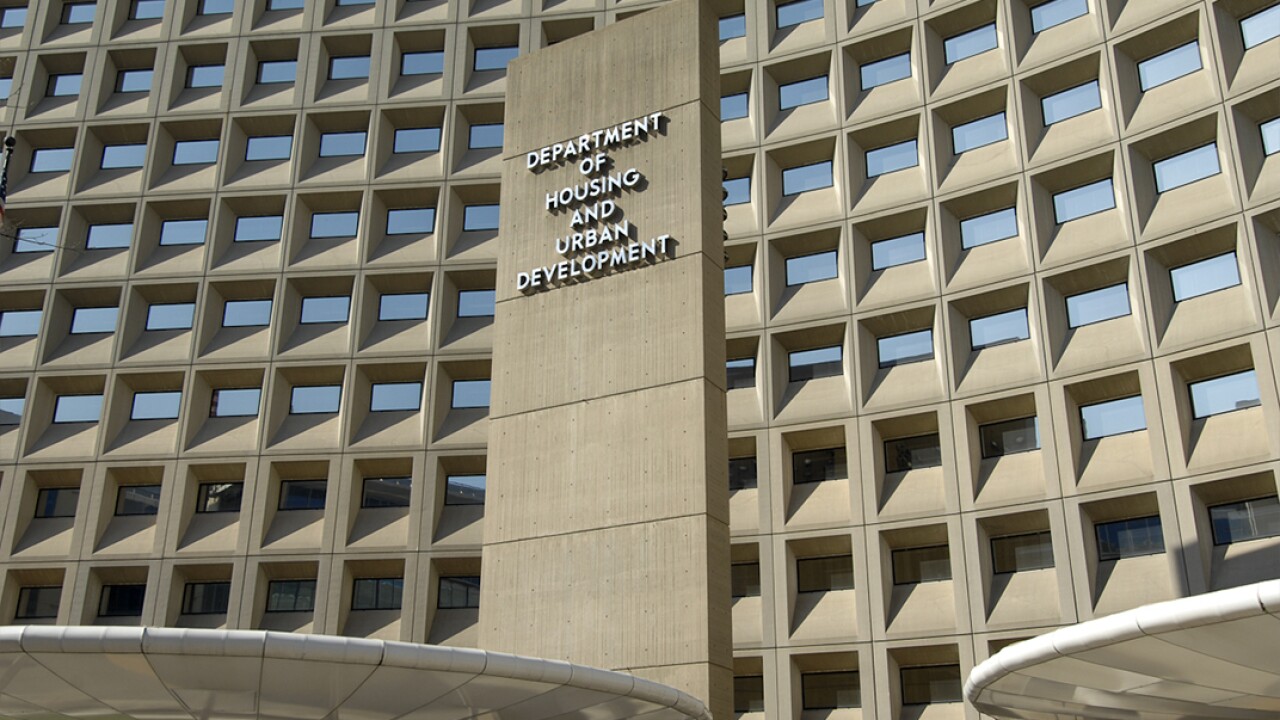Mortgage application volume declined on a week-to-week basis as interest rates rising to their highest level since November inhibited consumer activity, the Mortgage Bankers Association said.
The MBA's Market Composite Index was down 4.1% on a seasonally adjusted basis and 3% unadjusted for the week ended Feb. 5 compared with
"Treasury rates have been driven higher by expectations of faster economic growth as the COVID-19 vaccine rollout continues," Joel Kan, the MBA's associate vice president of economic and industry forecasting.
On Feb. 5, the 10-year Treasury yield at one point neared 1.19%, which was its highest since March 18.
Refinance applications, in particular, fell to their lowest level in three months, with its index, which is not seasonally adjusted, falling 4% compared with the previous week. The share of refi applications decreased to 70.2% of the total from 71.4% the previous week.
"Government refinance applications did buck the trend and increase, and overall activity was still 46% higher than a year ago," Kan said. "Demand for refinances is still very strong this winter."

The seasonally adjusted purchase index was down 5%, but was 2% higher on an unadjusted basis from the previous week. Compared with the same week in 2020, purchase application activity was up 17% on an unadjusted basis.
"Purchase applications cooled the first week of February, but homebuyers are still very active," Kan said. "The average purchase loan size continued to increase, reaching another survey high of $402,200, as the higher-priced segment of the market continues to perform well."
Adjustable-rate mortgage applications had a 2.3% market share last week, up from 2.2% one week ago.
By loan type, applications for Federal Housing Administration-insured mortgages saw their share increase to 9.5% from 9.1% the week prior. Veterans Affairs-guaranteed applications increased to 13.3% from 12.1% the week prior. The U.S. Department of Agriculture/Rural Housing Service share was unchanged from 0.4% the week prior.
The average rate for 30-year fixed conforming mortgages, those with a loan balance of $528,250 or less, rose 4 basis points over the previous week to 2.96%. For the FHA 30-year mortgage, the average rose 3 bps from the previous week to 2.97%.
But jumbo 30-year mortgages bucked the trend, dropping 1 bp from the previous week to 3.11%.
When it comes to the 15-year FRM, the average rate increased 6 bps to 2.5%.
Finally for the 5/1 ARM product that the MBA tracks, the average rate rose 4 bps to 2.92, with points decreasing to 0.36 from 0.46.





